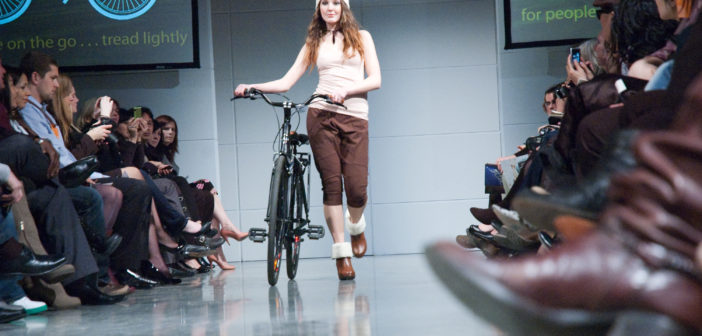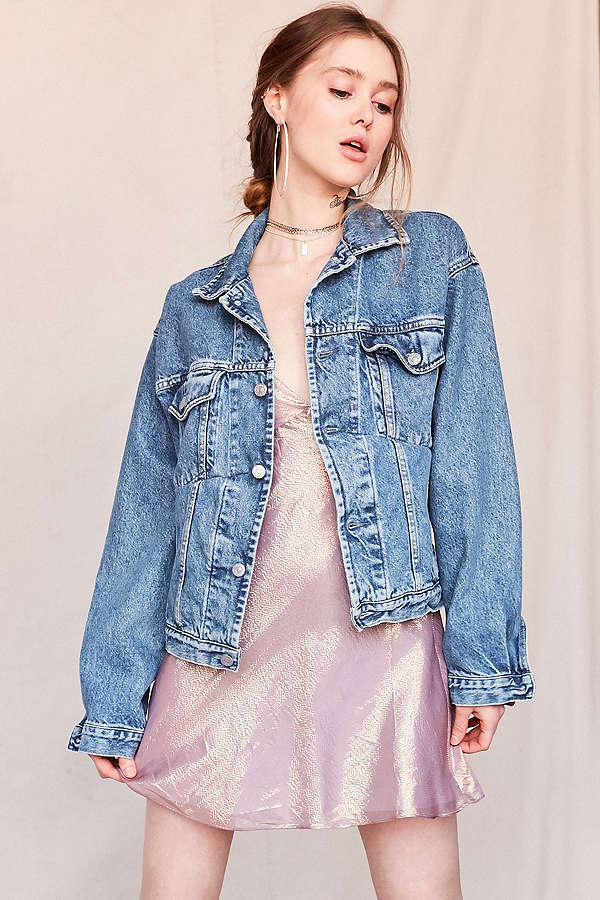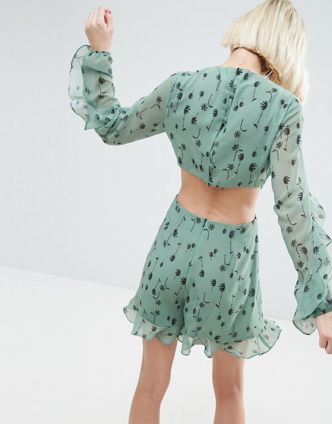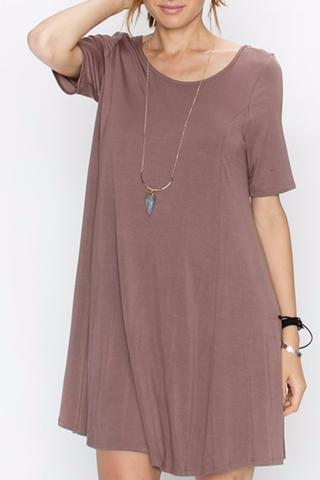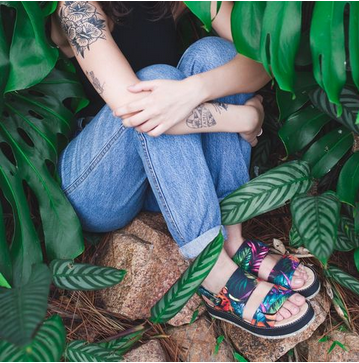We as consumers are living in the age of analysis paralysis, where there are too many options available to make a decision. The distance between the supplier and the distributor is becoming increasingly large, to the point where we do not know where our goods come from. So with all of the goods in front of us having a similar level of ambiguity, it is no wonder we find it difficult make a choice. It can be overwhelming and exhausting, but there are factors to take into consideration that can help narrow our shopping options.
Consumers are conditioned to equate fashion with trends, to accept the idea that fashion is always changing, and that your closet should be keeping up. In fact, a study of 2,000 women in the UK showed that clothes are worn on average only seven times before being discarded. And what’s worse, we don’t feel bad about this because we argue that we only paid about $10 for that shirt anyways. What we don’t take the time to calculate is that we could buy a sustainable, eco-friendly, ethically sourced shirt for $35, wear it about 20 times, and it would be the same blow to our wallets. Not to mention that the manufacturers, factory workers and our surrounding environment weren’t overworked along the way.
Next time you enter a store you can ask yourself, where does this come from? What may be retail therapy for you may actually be the result of inhumane manufacturing processes, or production which is harmful to the environment. Unfortunately, the problem with searching for sustainable products is that sustainability is not something you can observe by just looking at a product. You need to know something about the supply chain.
Creating eco-friendly products involves fair compensation for workers, using fabrics and dyes that do not require chemicals or pesticides to grow or too much water use, and creating clothes that last long so we don’t have to over consume. These things add up. But no matter how sustainable practices are marketed, it is understandable that seeing a $40 price tag for a basic tee will always be a turnoff, because we have become accustomed to the fast fashion prices that surround us.
It is time to get informed and make the right choices. Many are following eco-suit, demonstrated by United Nations Women’s Goodwill Ambassador Emma Watson’s eco-fashion instagram here. Below are the some of the most reasonable, eco-friendly clothing brands that can help revamp your closet as they re-imagine the sustainable fashion industry. So get to looking good and doing good!
Urban Renewal by Urban Outfitters: This is UO’s vintage clothing line that gets all of its materials from rag mills around the world where the fabrics would have otherwise been disposed of. All of the clothes are handmade in Philadelphia, each garment becoming a one-of-a-kind piece of a vintage collection.
ASOS Eco Edit : Asos is an online fashion marketplace that is based in London and sells its own brand, ASOS, as well as other similarly fashionable brands. In 2010, ASOS launched Green Room, which is now called Eco Edit, a destination within the asos.com website where customers can filter the products to show only sustainable fashion. In order to be labeled as an Eco Edit item, a garment has to fit into a sustainable category such as “handmade/handwoven”, “fair trade principles”, “organic ingredients”, etc. ASOS also sells its partner brand, called ASOS Made in Kenya, where all products are made in house at their Eco Edit location in Kenya that employs 50 Kenyan tailors who all receive fair compensation, food throughout the day and healthcare coverage.
Eco Vibe Apparel: This fashion marketplace focuses on sustainable fabrics that are ethically produced, such as bamboo, modal and cork. They try to stay away from cotton as much as possible, due to its environmental footprint. Bamboo is fast growing and requires minimal amounts of water. Modal and cork are trees that are never cut down to be harvested, only trimmed for the bark. Eco Vibe doesn’t have its own line, but it sells a variety of brands that fit its sustainability standards and can be found online or at its flagship store in Portland, Oregon.
Modernation: Each Modernation piece is created exclusively from vintage, upcycled and deadstock fabrics, and manufactured in Southern California. They also hold so steadfastly to their mission to eliminate fast fashion that they promote other eco-friendly brands on their own website to create a community of sustainable brands.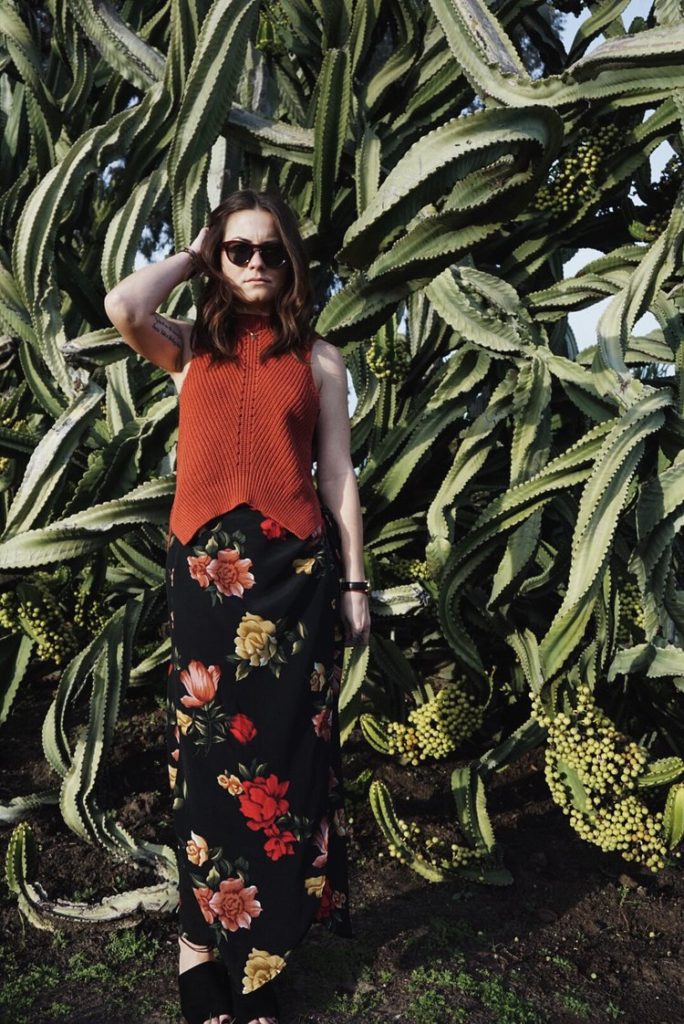
Insecta Shoes: This is an ecological and vegan company based in Brazil that ships worldwide. They repurpose/recycle used clothing and plastic water bottles into a transformed pair of shoes! A diagram showing one of their deconstructed shoes points out the source of each part of a shoe: the sole from shredded rubber recycled from the shoe industry, the heel from recycled plastics, the insole from its own recycled excess textiles. And what’s more, the shoes are designed to be agender, so you can support not only an environmental cause, but a social justice cause as well!
PACT: Pact’s main mission is to highly reduce the carbon footprint that the cotton industry has on our planet by using only organic cotton. Organic cotton uses 71% less water and 62% less energy. They also use dyes that are completely free of toxic chemicals. Doing so keeps the cotton farmers and the land around them healthy and sustainable. PACT also extends their sustainability mission to the factory conditions, making sure all employees are paid a living wage, factories are hygienic, and no child labor is used.
the Jane Goodall Institute
Get this: the Jane Goodall Institute’s own online store is also a sustainable marketplace. All of the shirts in the store are made by Royal Apparel, a company based upon sustainable fashion ideals. Royal Apparel uses only organic and recycled fabrics and they do all of their manufacturing in fair wage factories in the United States. All profits from any JGI apparel purchase go directly towards our programs to protect chimps, their habitat, improve the lives of people and grow education and leadership through Roots & Shoots.
By using these companies as a fashion guide to reorient yourself towards a more sustainable route, you can step out of the house in that new outfit of the day and not only feel good about yourself, but also about the environment.
To learn how to go green with your tech products and appliances as well, click here.


